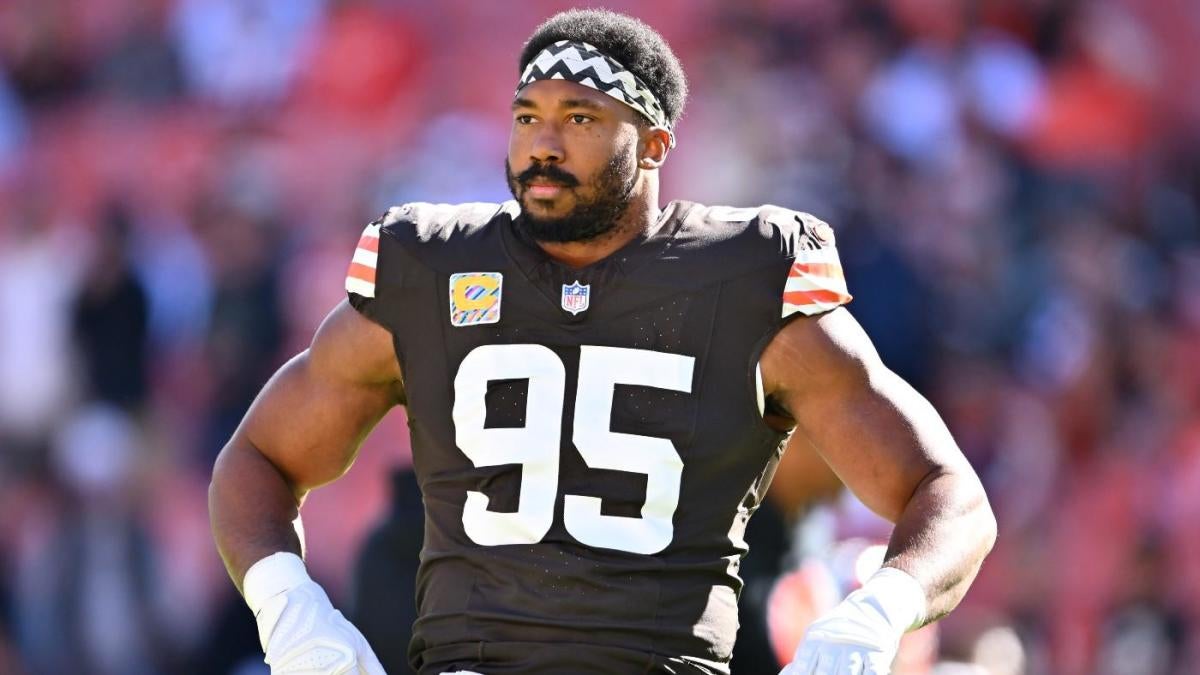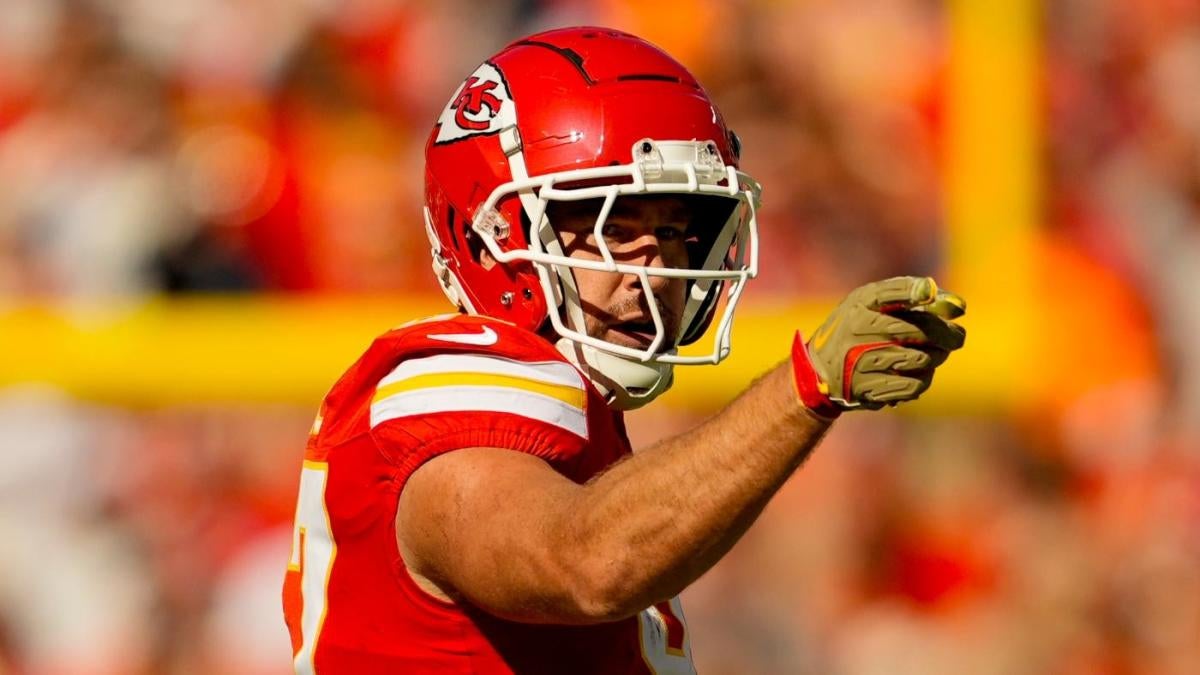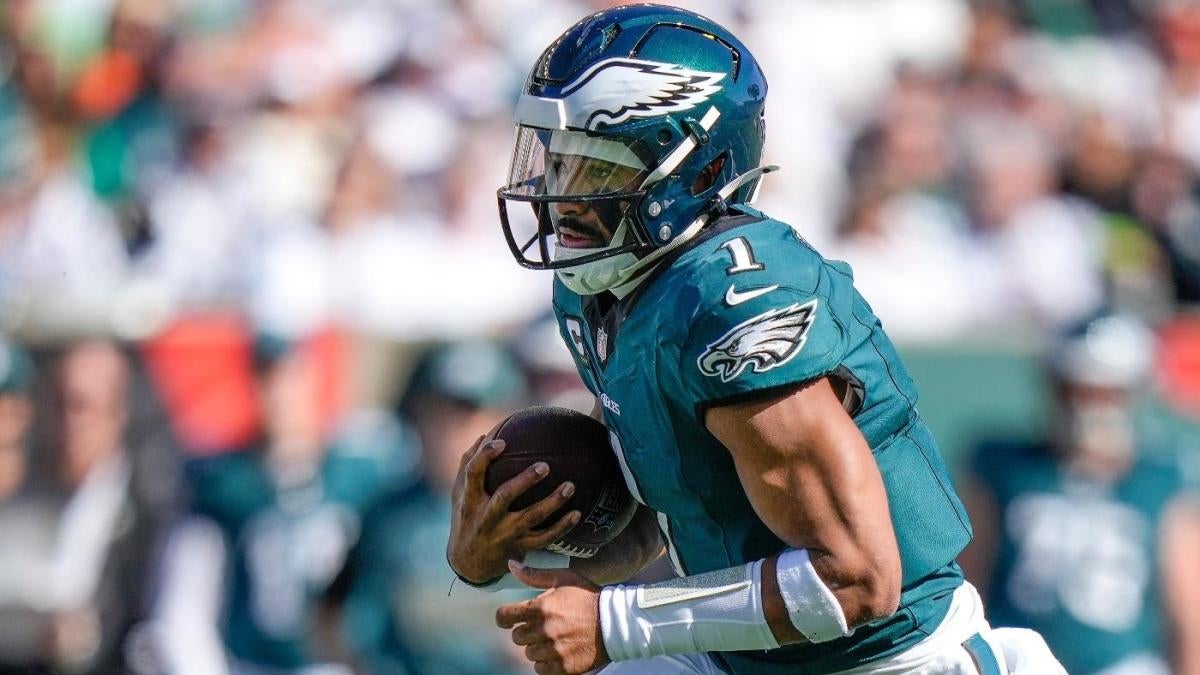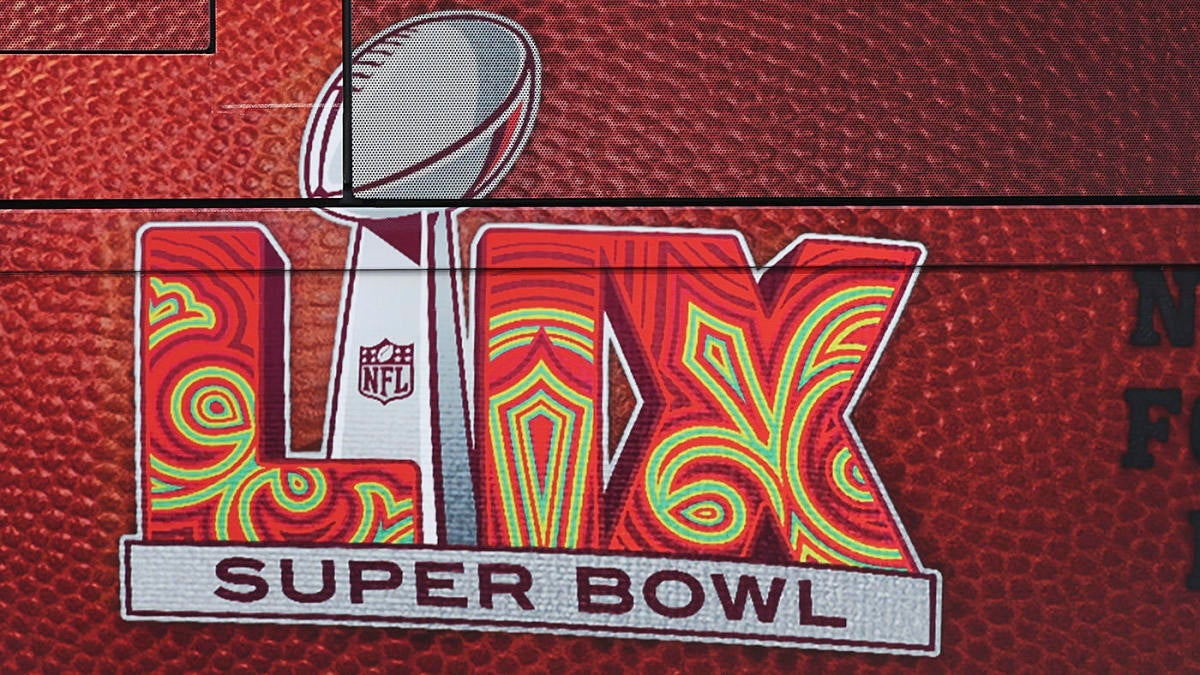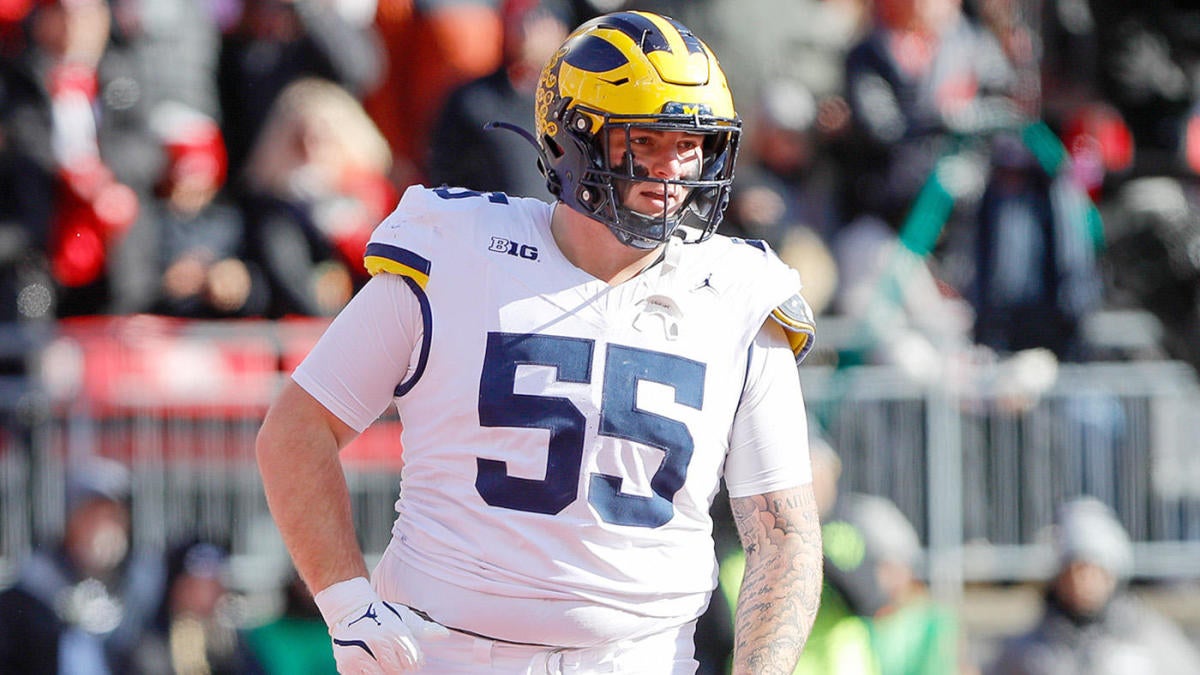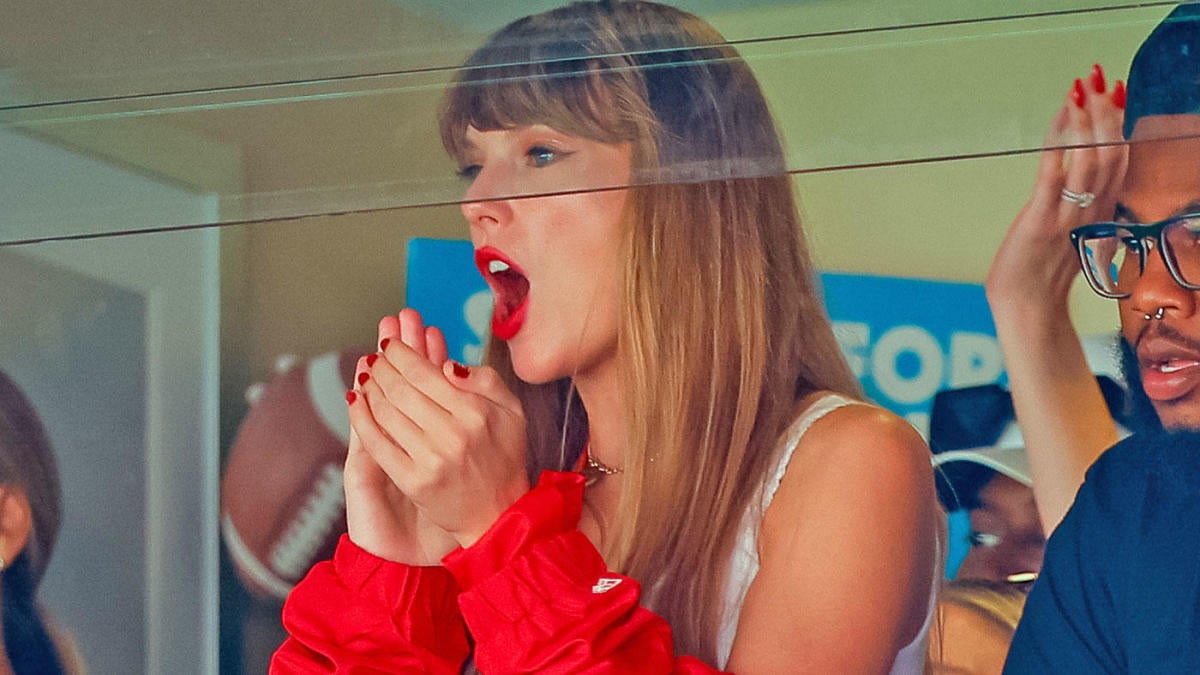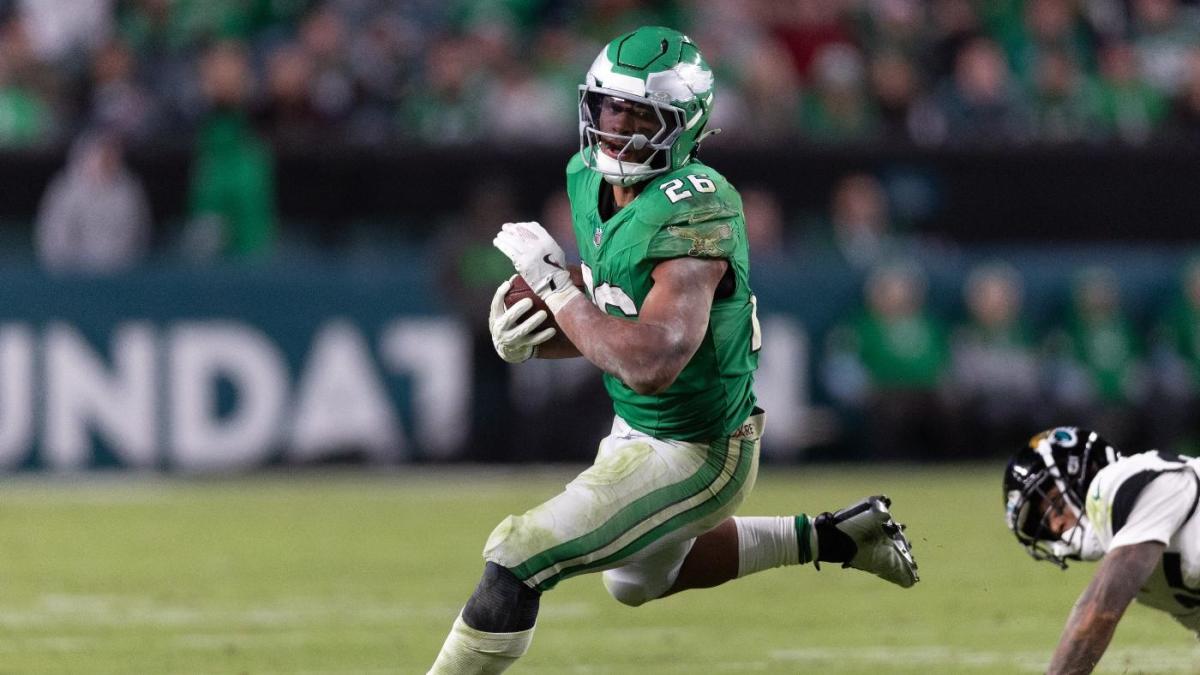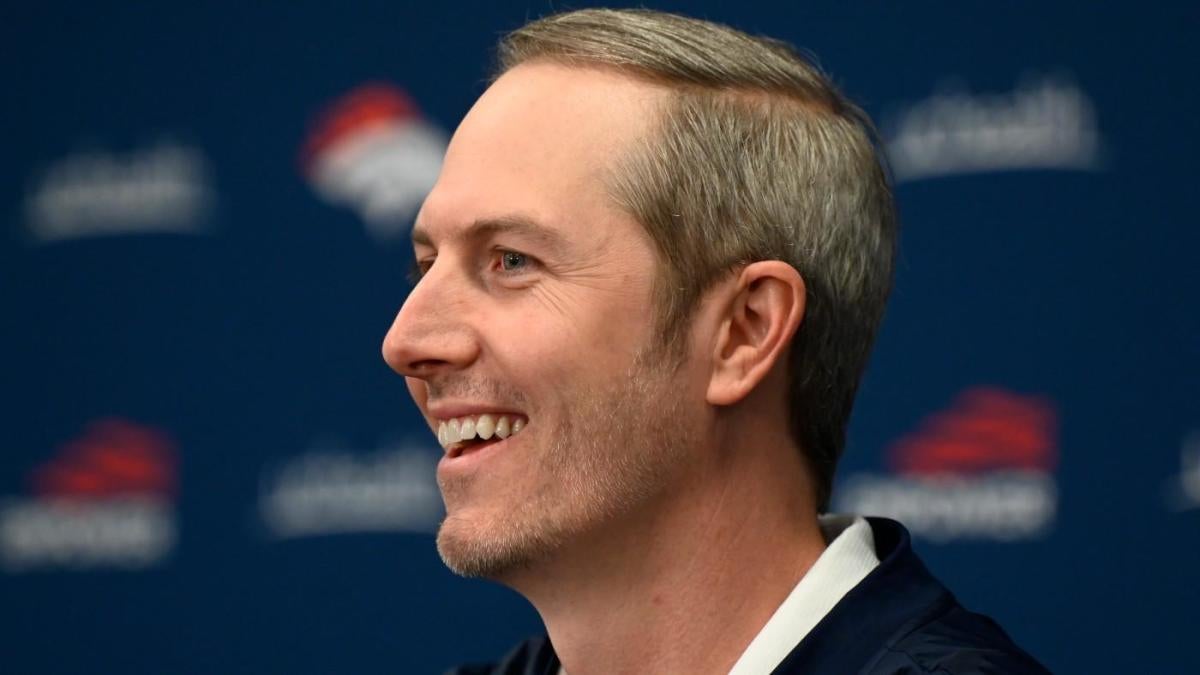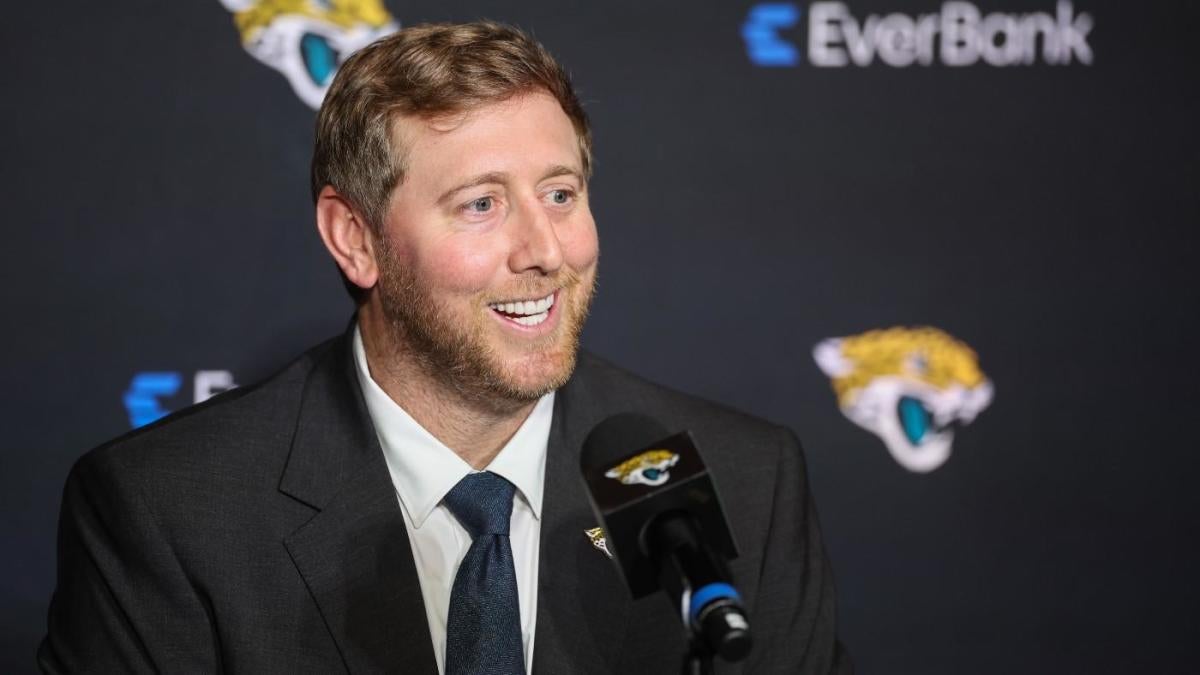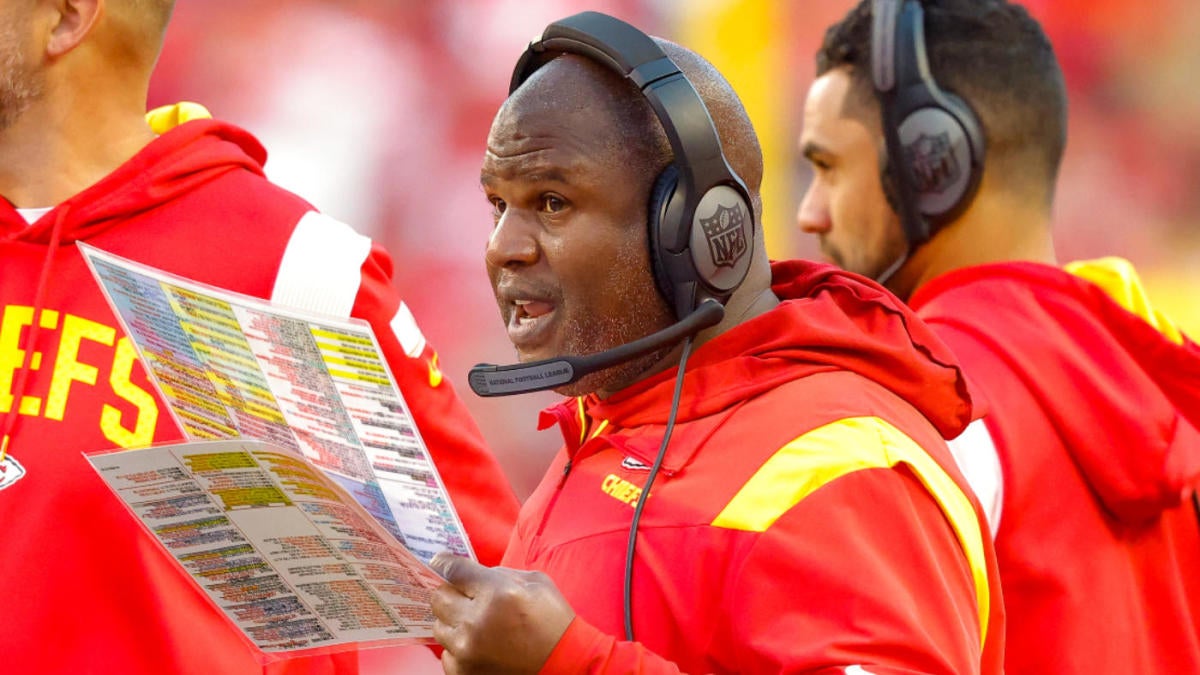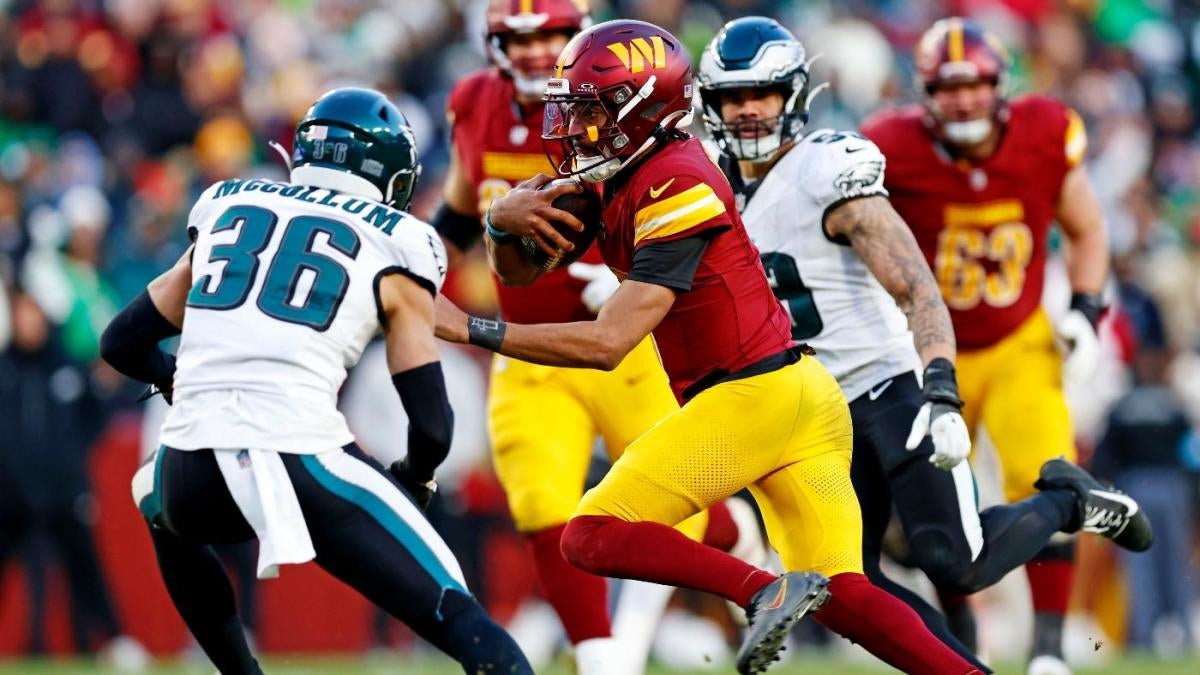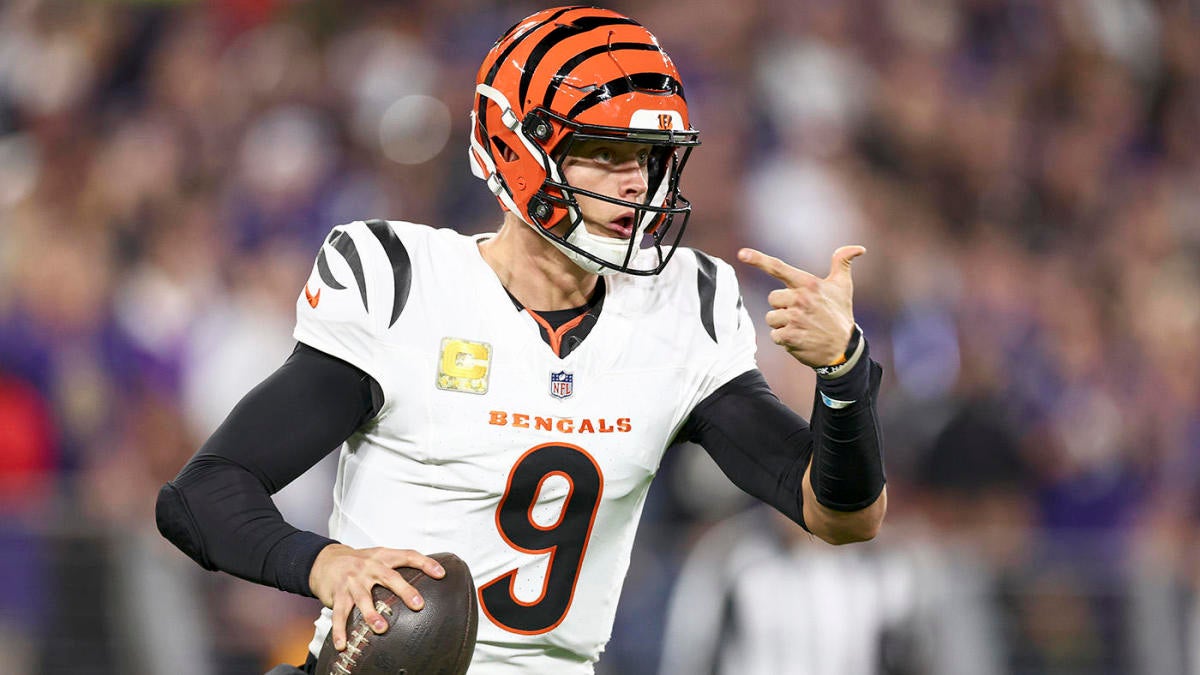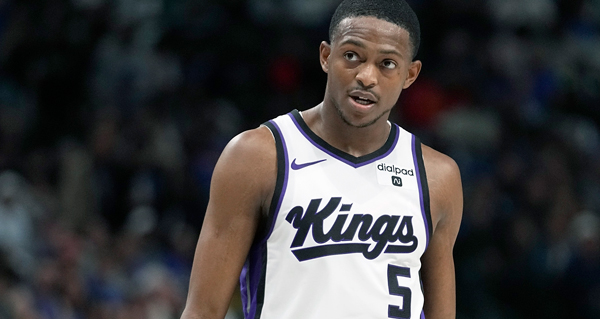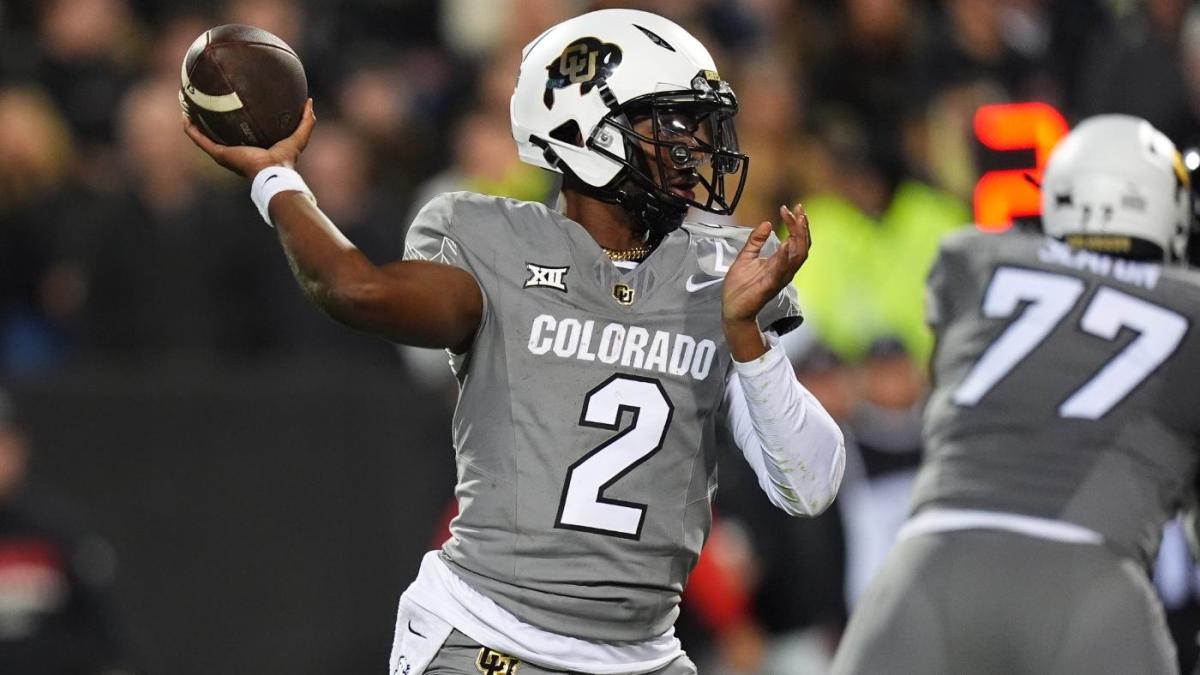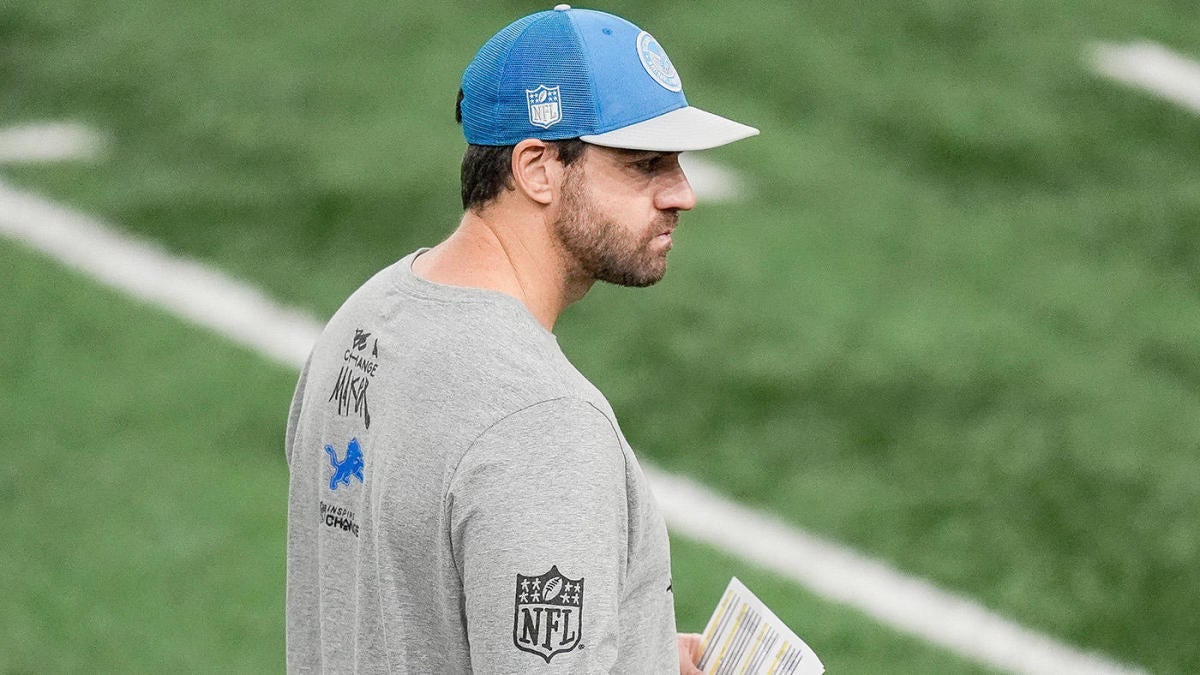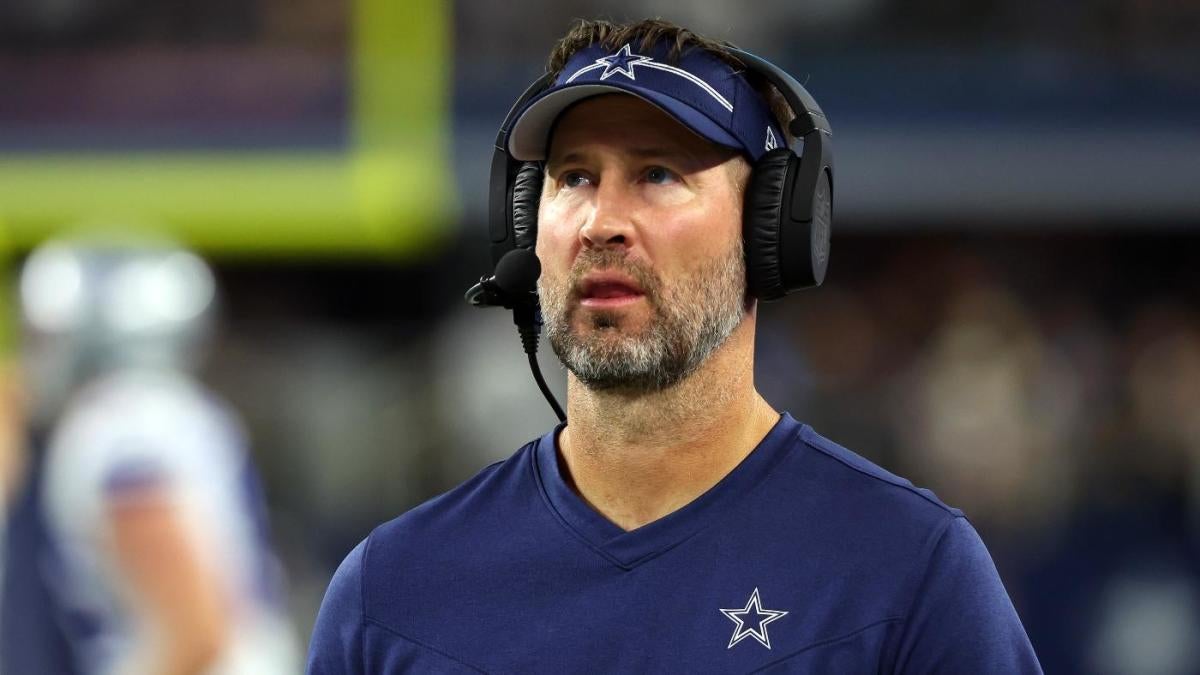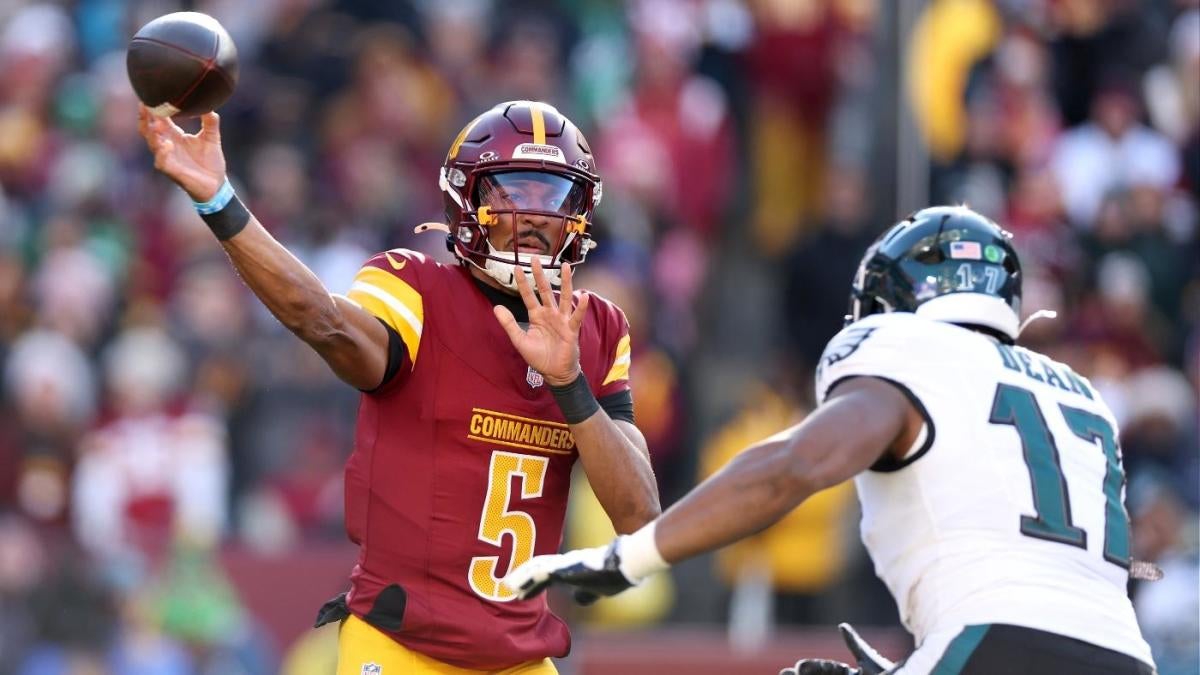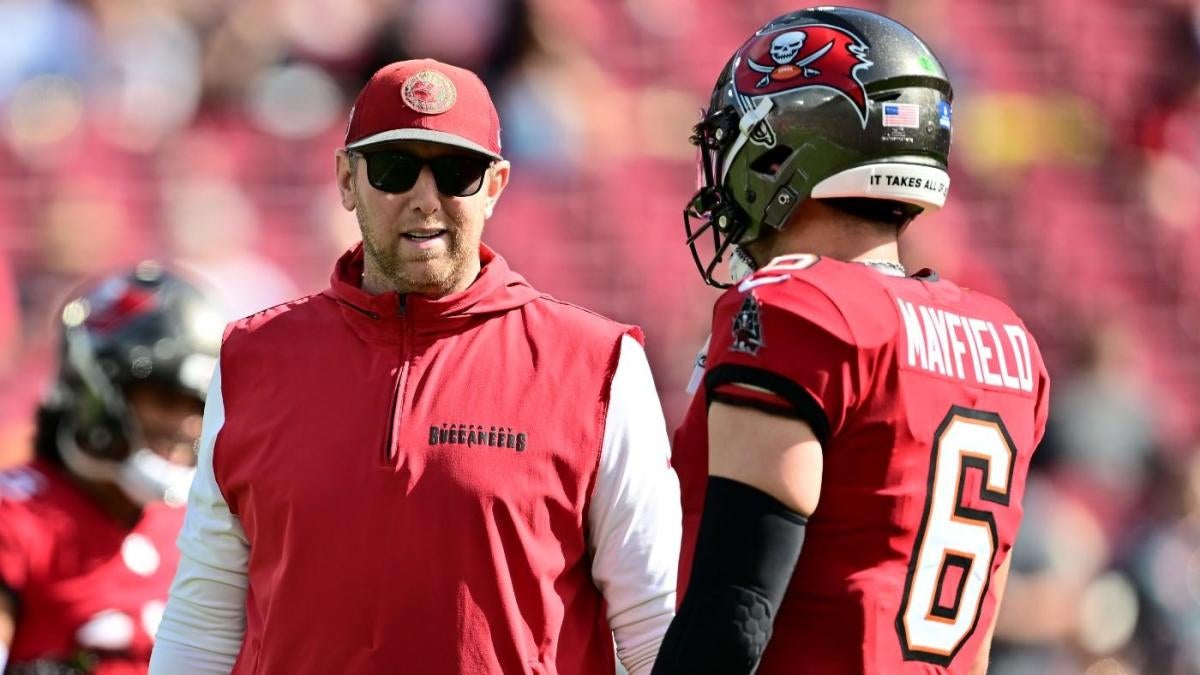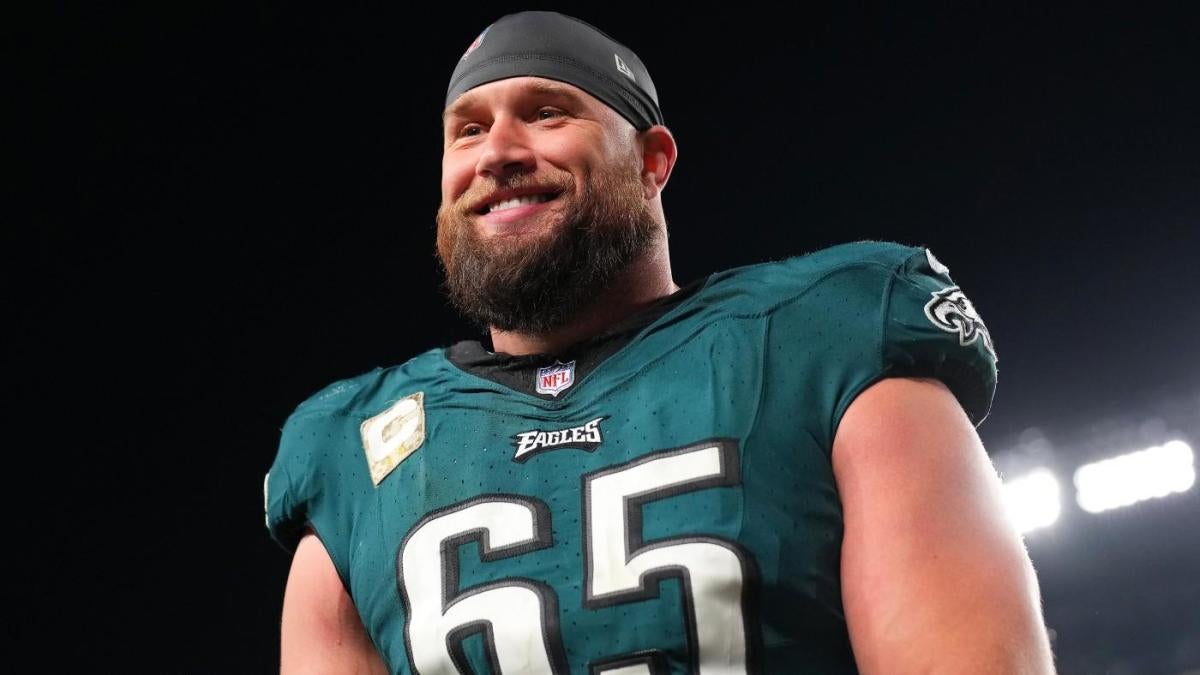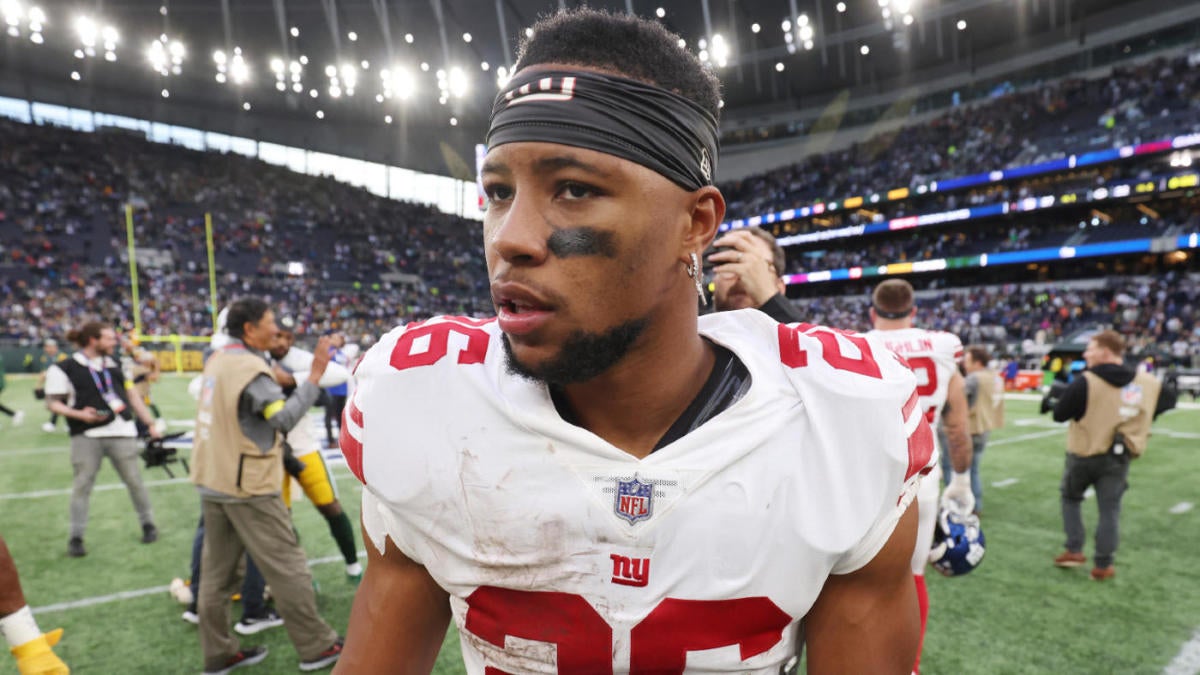
The Giants began organized team activities (OTAs) this week with a notable absence. Running back Saquon Barkley isn’t attending because of a contract dispute in which there have been plenty of twists and turns.
The Giants attempted to negotiate a contract extension with Barkley’s representatives last November around the bye week. An offer reportedly averaging $12.5 million per year was made by the Giants. General manager Joe Schoen indicated at the time the two sides “weren’t really that close” to reaching an agreement.
Negotiations resumed after the Giants lost to the Eagles in the divisional playoffs, as re-signing Barkley was an offseason priority along with quarterback Daniel Jones. According to multiple reports, the Giants upped their offer to $13 million per year with incentives, making the deal worth as much as $14 million per year. Reaching an agreement with Jones on a four-year, $160 million deal worth up to $195 million thanks to incentives and salary escalators allowed the Giants to designate Barkley as franchise player for $10.091 million on March 7 to prevent him from hitting the open market.
At the NFL owners meeting in late March, Schoen revealed that the offer was no longer on the table where a step was taken back after giving Barkley a franchise tag. Giants co-owner John Mara indicated that he wanted Barkley to spend his entire career with the team.
“Our message to him is still very much, ‘We want you back, want you to be one of the leaders of this team, want you to be one of the faces of this franchise,'” Mara said during the owners meeting. “But there’s a limit as to how far we can go. We have to build a team around you. We’ve gone just about as far as we can.”
Schoen suggested shortly after the completion of the NFL draft on April 29 that talks could reconvene to see if there might be a deal that makes sense to the two sides. The Giants have until 4 p.m. ET on Monday, July 17 to sign Barkley to a long-term deal since he is a franchise player. After the deadline passes, players with franchise tags are prohibited from signing multi-year contracts until the end of the regular season on January 7, 2024.
RB market hurting Barkley
Developments in the running back market since Barkley was given a franchise tag haven’t been helpful to him. Teams exercised fiscal restraint in free agency. Miles Sanders couldn’t capitalize on a 2022 season with the Eagles where he had career highs of 1,269 rushing yards and 11 rushing touchdowns, which were fifth and eight in the NFL respectively. He signed a four-year, $25.64 million contract with the Panthers averaging $6.35 million per year., with $13 million fully guaranteed. The next best deal belongs to David Montgomery. He went to the Lions for $18 million over three years. There are $11 million in guarantees, with $8.75 million fully guaranteed at signing.
The number of running backs making at least $12 million per year is dwindling. There were eight such running backs at the end of last season. The Cowboys released Ezekiel Elliott in March after 2022 was the worst season of his seven-year NFL career. Elliott had been the NFL’s second highest paid running back at $15 million per year. The two-time rushing champion signed a six-year, $90 million contract extension in 2019, when he had two years left on his rookie contract.
Aaron Jones took a pay cut from the backloaded four-year, $48 million contract he signed in 2021 to remain with the Packers. He reduced his 2023 compensation from $16 million to $11 million while leaving his $12 million salary in 2024 intact rather than risk the Packers parting ways with him. Jones made $20 million over the first two years of his deal.
The Vikings recently removing Dalvin Cook from their Twitter header and replacing him with Alexander Mattison, who backed him up for the last four seasons, increased speculation that he will be released or traded. The salary cap treatment will be more favorable for the Vikings with a Cook move after June 1. Cook signed a five-year extension with the Vikings in 2020 averaging $12.6 million per year. He would likely have to rework his contract if traded instead of being released.
Either way, there should only be five running backs left in the NFL with deals averaging $12 million per year or more.
There hasn’t been much growth in the running back market since Adrian Peterson took salaries to a new level in 2011 after several years of stagnation. Peterson received a six year, $85.28 million extension from the Vikings averaging $14,213,333 per year with an additional $4 million in base salary escalators.
Christian McCaffrey is currently the NFL’s highest paid running back with the four-year extension averaging $16,015,853 per year he signed in 2020. His deal is 12.68% more than Peterson’s. By contrast, the salary cap has increased by 86.75% from $120.375 million to $224.8 million during the 12 years since Peterson signed.
Comparing other top RB deals
The prevailing view is Barkley’s camp made a mistake in rejecting the Giants’ offer given the recent financial downturn with running backs. That’s hard to determine without knowing more details about the last offer. The total guarantees, amount fully guaranteed at signing, and cash flow — which are more important metrics than average yearly salary — and contract length haven’t been disclosed. The presumption is the Giants offered Barkley either a three or four year deal.
The last running back to be given a franchise tag before Barkley was Derrick Henry by the Titans in 2020. He signed a four-year, $50 million deal averaging $12.5 million per year worth a maximum of $51 million through incentives. Henry had $25.5 million fully guaranteed, which was the first two years or 51% of the deal. Based on Henry’s contract, Barkley could have reasonably expected $26.5 million to be fully guaranteed in a four year deal.
The most recent high end data point in the marketplace for three years is the extension Nick Chubb signed with the Browns in 2021 for $36.6 million. Chubb’s $12.2 million per year extension had $20 million in overall guarantees where $17,133,059 was fully guaranteed. He received $13.55 million or 37.02% of his new money through his first new contract year, which was 2022. Chubb is at $24.4 million or 66.67% of new money after his second new contract year, which isn’t frontloaded or backloaded.
A neutral three year deal at $13 million where Barkley has the same 66.67% of his money after the second year is the least amount that would have gotten serious consideration for him to accept. This would have been $26 million after the first two years. With subpar guarantees, the deal would have needed to be frontloaded in order for Barkley to consider taking it.
If the Giants based the first two years, whether in a three or four year deal, on the cash for two franchise tags, the offer would have been quickly rejected by Barkley’s side. A second franchise tag in 2024 at a NFL Collective Bargaining Agreement mandated 20% increase over Barkley’s current number would be $12,109,200. Barkley’s total cash on two franchise tags would be $22.2 million.
That’s too backloaded to accept with either length. The Titans didn’t take that approach with Henry. His franchise tag was $10.278 million in 2020. Henry’s two year cash total on consecutive franchise tags would have been just over $22.6 million.
Giants’ unusual move of pulling their offer
It would be easy to conclude that Barkley’s camp overplayed their hand with an offer structured fairly along the lines of the Henry and Chubb deals. We don’t know if that’s the case.
I used negotiating in media as a last resort when I represented players, which might explain why important details about the offers have remained private. If I felt my client was being treated unfairly, I had no qualms about going about public much earlier with his blessing or having a trusted member of the media leak selected favorable information on our behalf to try to apply pressure on the team.
The Giants pulling their offer was surprising. Ordinarily, discussions are just tabled or paused when an impasse is reached. That was my experience as an agent. Rarely, was an offer completely taken off the table. It typically happened after there was a warning where I had a specified amount of time to accept before the offer expired. This didn’t come months before a deadline, like in Barkley’s case.
I recently asked a former longtime team negotiator for an NFL team about the frequency he pulled offers off the table. He said he only did it a handful times in the nearly 20 years he negotiated contracts on the team side. It signified that he was comfortable going in another direction when dealing with a free agent or any subsequent negotiations if with one of his team’s own players would be on his terms.
Leverage is in Giants’ favor because of the most recent economic developments with running backs. The Giants would be well within their rights to make a new deal lower than before that reflects the changing running back market conditions. Any justification for a reduction from the most recent offer surely won’t be well received by Barkley. He’ll view it as being unwarranted as there hasn’t been any kind of poor performance or injury since the last offer was made during the early part of the offseason. The Giants going this route probably wouldn’t be conducive to reaching a long-term agreement.
Final thoughts: What should be done
Given that public perception (whether right or wrong) is Barkley’s camp has mishandled negotiations, the Giants are likely going to have to hand him some sort of life line to get a deal done. That’s probably going to be a structural improvement with additional guarantees or better cash flow rather than increasing the value of the deal.
The NFL’s 2022 rushing leader, Josh Jacobs, who was also given a franchise tag by the Raiders, getting a long term deal would be beneficial to Barkley. A deal presumably would be for more than Barkley’s last offer. Jacobs doesn’t seem to be any closer to signing than Barkley.
Mara intervening at the eleventh hour with a directive to get Barkley done if the two sides are relatively close might result in a deal. Barkley is still the face of the franchise and the focal point of the offense, although the skill position talent has improved, especially with the addition of Pro Bowl tight end Darren Waller.
I suspect that if the Giants don’t put an offer back on table that’s at least in the same ballpark as where they were during last November’s bye, there won’t be a deal before the July 17 deadline. The Giants shouldn’t expect to see Barkley at the start of training camp in late July under those circumstances.
As an unsigned franchise player, Barkley couldn’t be fined $50,000 for each day of training camp he missed. His attendance wouldn’t be required because of the absence of a signed contract. He wouldn’t be withholding services he is contractually obligated to perform. Barkley would likely show up on his own timetable at some point during the preseason to sign his $10.091 million franchise tender, which would be less than ideal circumstances for everybody.
Go to Source
Author: Joel Corry
May 24, 2023 | 3:48 pm

